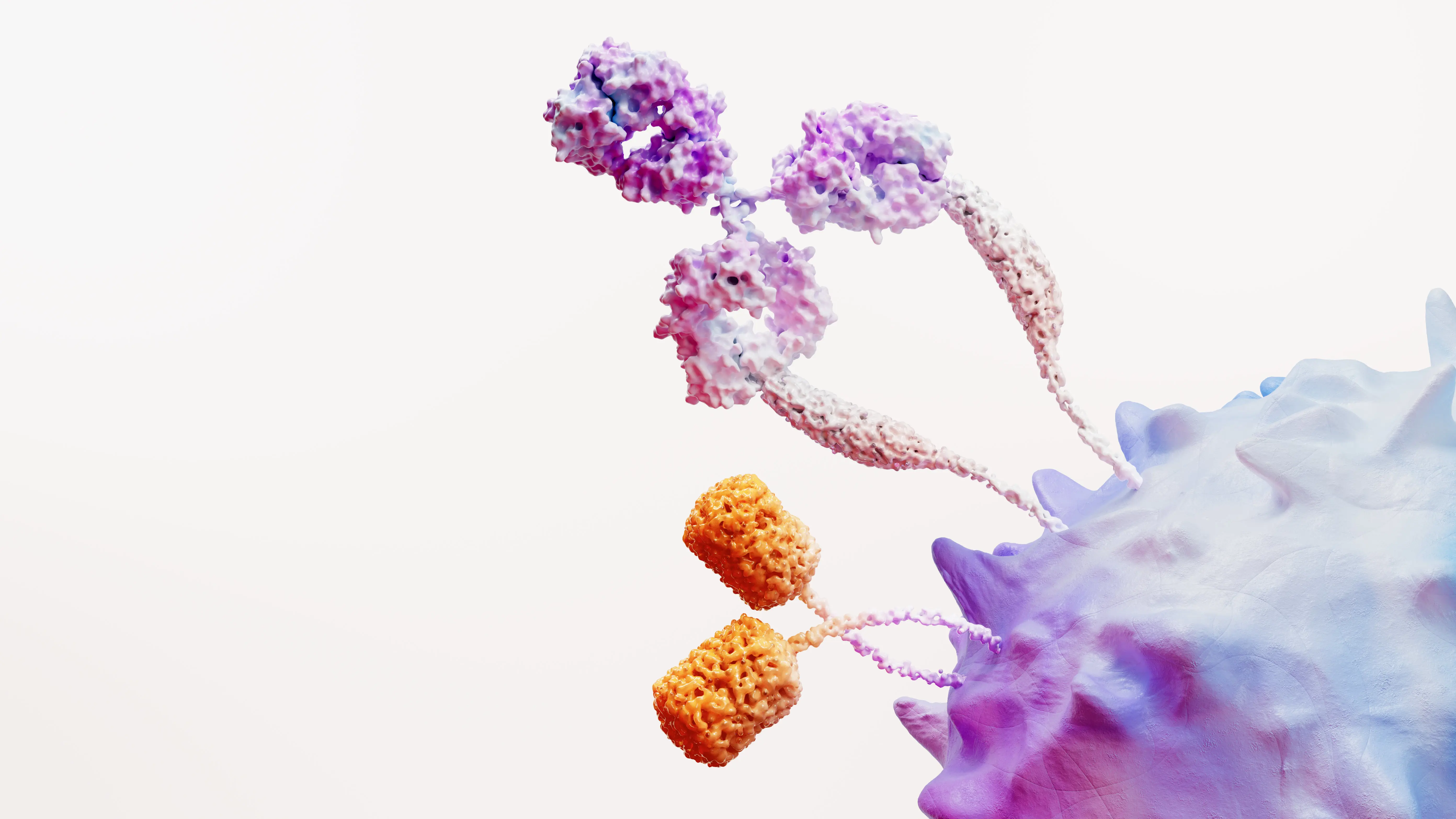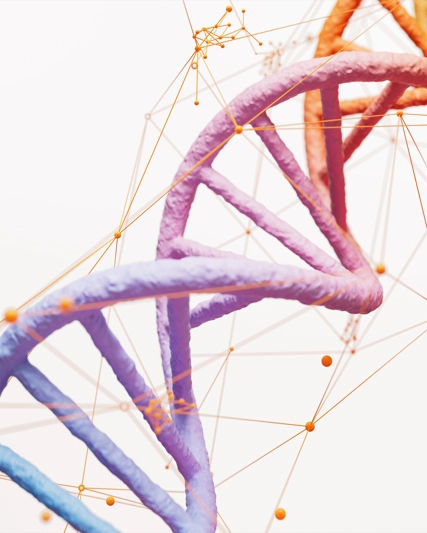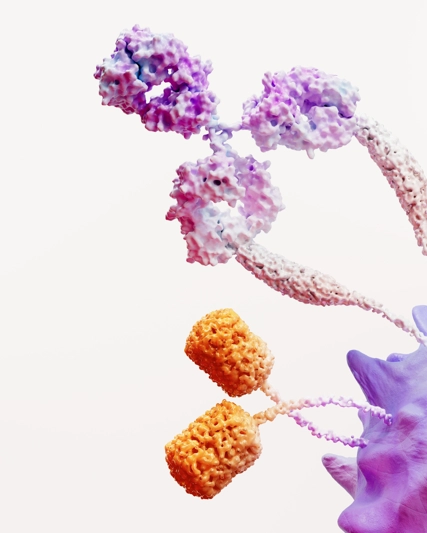Five for Five
This Gynecologic and Ovarian Cancer Awareness month, GSK is encouraging you to spend five minutes to learn more about the risks, symptoms and importance of spreading awareness of gynecologic cancers.

Every five minutes, someone’s life changes with a gynecologic cancer diagnosis.1,2
This Gynecologic and Ovarian Cancer Awareness month, GSK is encouraging you to spend five minutes to learn more about the risks, symptoms and importance of spreading awareness of gynecologic cancers.
Together, let's educate and empower people as they make important health decisions. Join the 'five for five' conversation on LinkedIn, X and Facebook. Check out the resources below that can help to better understand important facts of gynecologic cancers.

Make five minutes matter
It is important for those affected by gynecologic cancers to understand and recognize risk factors, early signs and symptoms, and when to speak with a doctor. Download our guide to have this information at your fingertips.

After being diagnosed with a gynecologic cancer, taking care of yourself means much more than just following the medical treatment regimen discussed with your doctor. It is important to stay vigilant and ask your care team any questions you may have. Print out and read through these discussion guides, and feel free to take any notes and bring them to your next appointment to help guide your conversations.
Ovarian Cancer Discussion Guide
Endometrial Cancer Discussion Guide

Join the 'Five for Five' campaign this Gynecologic Awareness Month
Take five minutes to make sure you and your loved ones understand these five important facts about gynecologic cancers. Share with your close friends and family to help spread the message this September!
Disparities in Gynecologic Cancer
Gynecologic cancers impact people of all races and backgrounds, however, people of color often experience poorer outcomes across the board.14 In fact, some data show that Black individuals are dying at higher rates from gynecologic cancers than other race groups.15 This is likely due to several reasons, including that it often takes Black gynecologic cancer patients a longer time to get diagnosed,16 and therefore, they are more likely than White patients to have advanced disease at the time of diagnosis.14
One way to potentially promote early diagnosis of gynecologic cancers is to talk to your doctor about undergoing genetic testing and counseling, especially if there is a family history of gynecologic cancers, as genetics can contribute to an increased risk.17 Genetic testing conversations are especially important for people of color, as data shows that White patients are more likely to be referred for genetic testing due to family cancer history than all other ethnicities.18 Further, a study found that Black patients were more likely to utilize genetic services following a cancer diagnosis and less likely due to family cancer history, which suggests a missed opportunity for cancer prevention.18
For more on education, empowerment, and support for people of color who are at risk or affected by gynecologic cancers, read about endometrial cancer on EBONY Magazine:
Endometrial Cancer Diagnosis - Dr Nathalie Mckenzie Orlando (ebony.com)
Dr. Nathalie McKenzie, Gynecologic Oncologist at Florida Advent Health Cancer Institute in Orlando, Florida, provides her perspective on racial disparities, signs & symptoms, causes and the importance of early diagnosis in endometrial cancer.
Our Way Forward – Same Name, New Resource
Coming soon!
Our Way Forward is a call-to-action that encourages people living with gynecologic cancers – such as endometrial and ovarian cancer – as well as their loved ones and healthcare providers to rethink what they know about these cancers. The initiative provides ways to learn from each other’s cancer experiences, get smart about genetic testing and help navigate the physical and emotional challenges that these diseases bring.
This September, in honor of Gynecologic Cancer Awareness Month and Ovarian Cancer Awareness Month, we are excited to announce that Our Way Forward is being transformed into an updated comprehensive resource for gynecologic cancers, to properly support patients, families and care partners faced with an ovarian or endometrial cancer diagnosis.
Stay tuned for more information!
References
Learn the Facts. Join the Movement. Foundation for Women’s Cancer. https://foundationforwomenscancer.org/get-involved/move-the-message/%20-%20:~:text=Every%20five%20minutes%2C%20a%20woman,nearly%20115%2C000%20Americans%20each%20year. Accessed July 2024.
Weiss C. Women’s Wellness: 3 tips for gynecologic cancer awareness. Mayo Clinic. https://newsnetwork.mayoclinic.org/discussion/womens-wellness-3-tips-for-gynecologic-cancer-awareness/. Published September 3, 2020. Accessed July 2024.
Gynecologic Cancer Basics. CDC. https://www.cdc.gov/gynecologic-cancer/about/?CDC_AAref_Val=https://www.cdc.gov/cancer/gynecologic/basic_info/index.htm. Last Updated December 6, 2023. Accessed July 2024
Uterine Cancer Statistics. CDC https://www.cdc.gov/uterine-cancer/statistics/?CDC_AAref_Val=https://www.cdc.gov/cancer/uterine/statistics/index.htm. Last Updated June 13, 2024. Accessed July 2024.
Uterine Cancer and Endometrial Cancer. Penn Medicine Abramson Cancer Center. https://www.pennmedicine.org/cancer/types-of-cancer/uterine-cancer-and-endometrial-cancer. Accessed July 2024.
Ovarian Cancer Statistics. CDC. https://www.cdc.gov/ovarian-cancer/statistics/?CDC_AAref_Val=https://www.cdc.gov/cancer/ovarian/statistics/index.htm. Last Updated June 13, 2024. Accessed July 2024.
Signs and Symptoms of Endometrial Cancer. American Cancer Society. https://www.cancer.org/cancer/types/endometrial-cancer/detection-diagnosis-staging/signs-and-symptoms.html. Last updated March 17, 2019. Accessed July 2024.
Referenced with permission from the NCCN Guidelines® For Patients: Ovarian Cancer. V.1.2021. © National Comprehensive Cancer Network, Inc. 2021. All rights reserved. Accessed July 2024. To view the most recent and complete version of the guideline, go online to NCCN.org. NCCN makes no warranties of any kind whatsoever regarding their content, use or application and disclaims any responsibility for their application or use in any way.
Key Statistics for Endometrial Cancer. American Cancer Society. https://www.cancer.org/cancer/types/endometrial-cancer/about/key-statistics.html. Last Revised January 17, 2024. Accessed July 2024.
Key Statistics for Ovarian Cancer. American Cancer Society. https://www.cancer.org/cancer/types/ovarian-cancer/about/key-statistics.html. Last Revised January 19, 2024. Accessed July 2024.
Endometrial Cancer Risk Factors. American Cancer Society. https://www.cancer.org/cancer/endometrial-cancer/causes-risks-prevention/risk-factors.html. Last updated March 27, 2019. Accessed July 2024.
Ovarian Cancer Risk Factors. American Cancer Society. https://www.cancer.org/cancer/ovarian-cancer/causes-risks-prevention/risk-factors.html. Last Updated January 26, 2021. Accessed July 2024.
Biomarker Tests and Cancer Treatment. American Cancer Society. https://www.cancer.org/cancer/diagnosisstaging/tests/biomarkertests.html#:~:text=
Cancer%20biomarkers%20are%20genes%2C%20protein%2C%20or%20other%20substances,
to%20reveal%20important%20details%20about%20a%20person%E2%80%99s%20cancer.
Last Updated September 2022. Accessed July 2024Towner, M., Kim, J. J., Simon, M. A., Matei, D., & Roque, D. (2022). Disparities in gynecologic cancer incidence, treatment, and survival: a narrative review of outcomes among black and white women in the United States. International journal of gynecological cancer : official journal of the International Gynecological Cancer Society, 32(7), 931–938. https://doi.org/10.1136/ijgc-2022-003476
Lee MW, et al. Am J Obstet Gynecol. 2024;doi:10.1016/j.ajog.2024.03.003. Whetstone, S., Burke, W., Sheth, S. S., Brooks, R., Cavens, A., Huber-Keener, K., Scott, D. M., Worly, B., & Chelmow, D. (2022).
Whetstone, S., Burke, W., Sheth, S. S., Brooks, R., Cavens, A., Huber-Keener, K., Scott, D. M., Worly, B., & Chelmow, D. (2022). Health Disparities in Uterine Cancer: Report from the Uterine Cancer Evidence Review Conference. Obstetrics and gynecology, 139(4), 645–659.
Genetic Testing for Inherited Cancer Susceptibility Syndromes. National Cancer Institute. https://www.cancer.gov/about-cancer/causes-prevention/genetics/genetic-teting-fact-sheet. Last Reviewed April 18, 2024. Accessed August 2024.
Chapman-Davis, E., Zhou, Z.N., Fields, J.C. et al. Racial and Ethnic Disparities in Genetic Testing at a Hereditary Breast and Ovarian Cancer Center. J GEN INTERN MED 36, 35–42 (2021). https://doi.org/10.1007/s11606-020-06064-x


